This National Children’s Month, Meta launched new Instagram Parental Supervision Tools and resources in the Philippines to help keep young people safe and support their well-being online.
The Family Center is a hub where parents and guardians can access materials and resources to help young people build positive online habits. Through the Family Center, parents and guardians can now set up new tools to oversee the Instagram accounts of young people in their families. The tools are available in English and Filipino.
Over time, the Family Center will become a key resource to help parents, guardians, and young people manage experiences across all Meta technologies.
An education hub for parents and guardians
The Family Center is accessed via the Instagram app and includes articles, videos, and tips on a range of topics to help parents and guardians start a conversation with teens about social media. It also includes video tutorials on how to set up and use the new Supervision Tools.
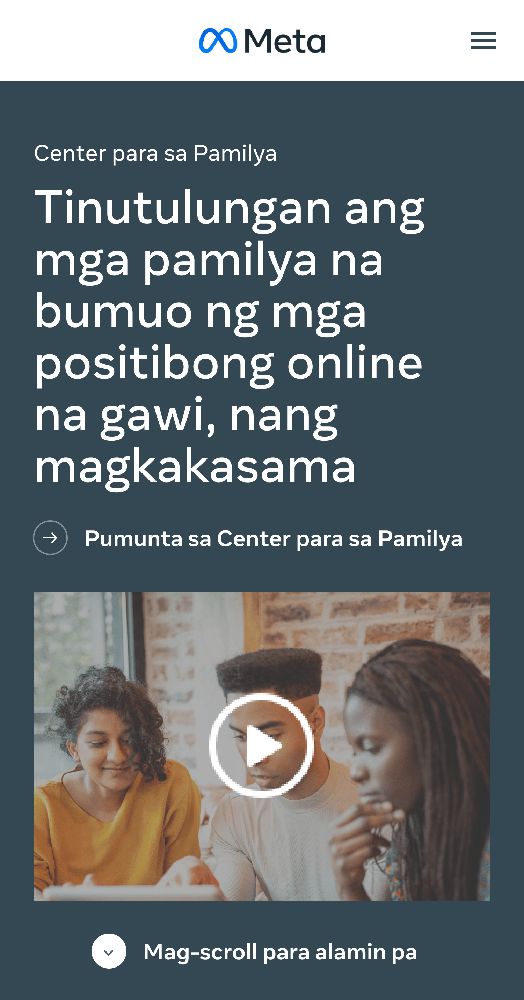
New Instagram Parental Supervision Tools
The Supervision Tools allow parents and guardians to:
- Manage time spent on Instagram — Parents and guardians can set screen time limits and schedule breaks for their teens during the day or week.
- Keep track of new connections on Instagram — Parents and guardians can be notified of new accounts that young people in their family are following, as well as the accounts that follow them back.
- Get notified of reports — Young people can choose to notify their parent or guardian if they make a report on Instagram, so they can discuss what happened together.
Parents and guardians can send invitations on Instagram to young people in their family to initiate Supervision tools, and vice-versa.
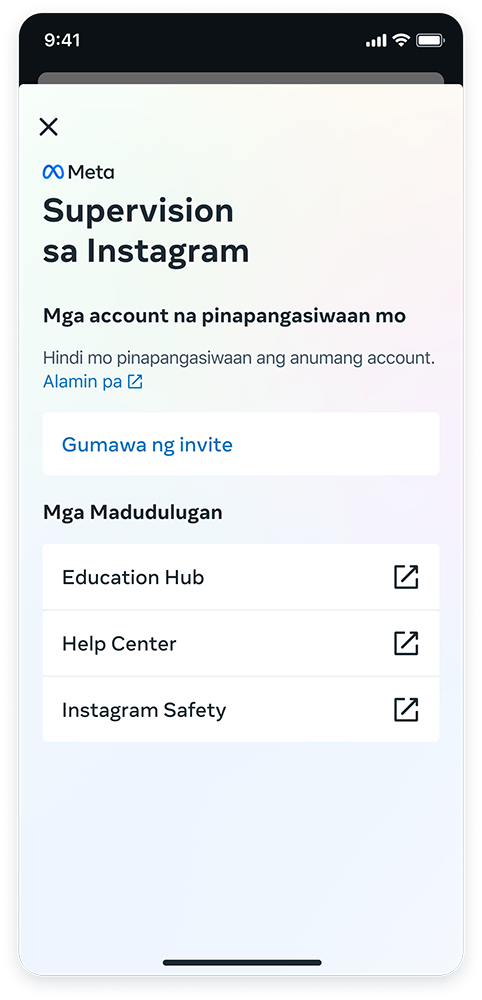
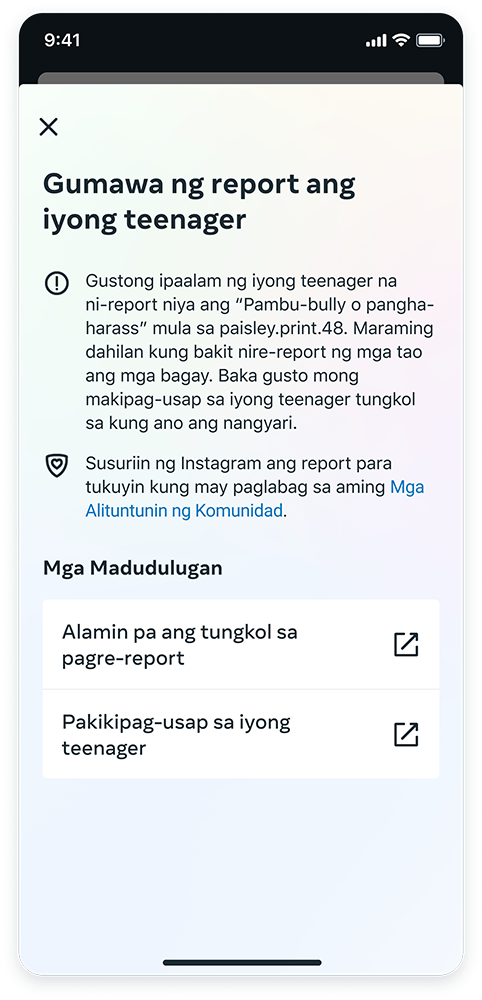
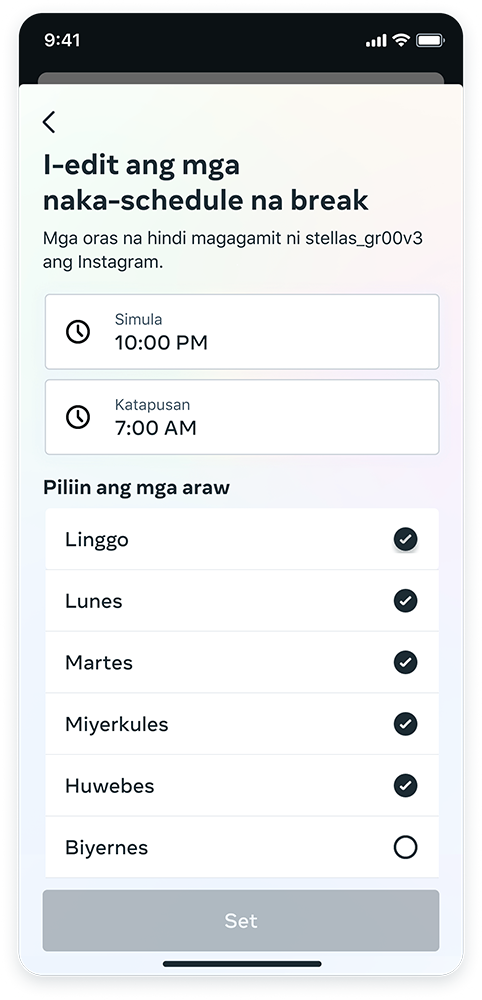
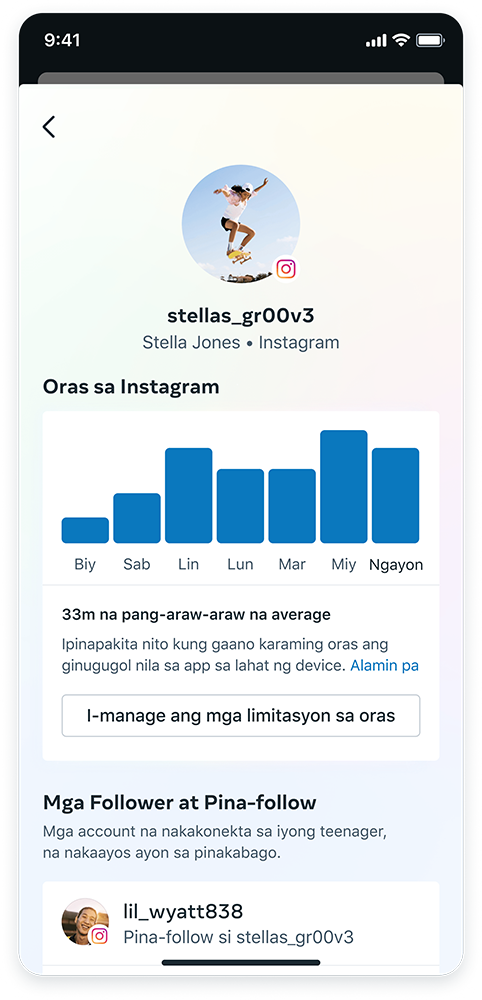
Consulting with experts
The Family Center and Parental Supervision Tools were launched after extensive consultation with experts, parents, guardians, and young people from around the world. Ahead of the launch, Meta convened roundtables with experts from the government, the academe, and non-profit organizations in the Philippines, including the Department of Information and Communications Technology, Council for the Welfare of Children, Stairway Foundation, Plan International Philippines, UNICEF Philippines, Save the Children Philippines, Youth for Mental Health Coalition, Unang Hakbang Foundation, Society of Adolescent Medicine of the Philippines, and the De La Salle University Social Development Research Center.
Discussion at these roundtables focused on three core areas: (1) how to empower teens to make healthy decisions for self-supervision; (2) how to build trusted networks of support; and (3) how to support families to create boundaries for safe use together.
Dr. Ma. Emma Llanto of the Society of Adolescent Medicine of the Philippines stressed the importance of these discussions saying, “Understanding Filipino teens’ psychosocial and adolescent development and how the teen brain works can help us better know what measures to work with when dealing with social media supervision. We cannot impose rules without good relationships with your children. We need to make it balanced.”
Jesus Far, a Child Protection Specialist at UNICEF Philippines, also noted the role that parents and guardians must play in educating and empowering young people to stay safe online. “Spending one-on-one time with your teens is important. How you start and follow up on crucial conversations—this is a skill that parents should also learn,” says Far.
“We want young people to have an experience that is both fun and safe when using our apps, and we want to support their parents to assist them in doing this,” says Clare Amador, Philippine Public Policy Head at Meta.
“Our intention is for these tools and resources to strike the right balance between young people’s desire for autonomy online, whilst allowing for some involvement from parents and caregivers to help ensure their teen is having a safe experience online. We are grateful for the inputs of safety experts, our partners, parents, and young people whose feedback has been instrumental in helping us design all of our age-appropriate experiences. Keeping young people safe online is one of our most important responsibilities, and we remain committed to continuing our investment in new tools, products, and resources,” Amador shares.
Learn how to set-up Parental Supervision here.
